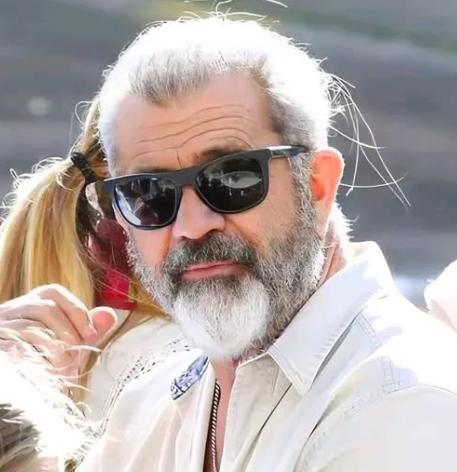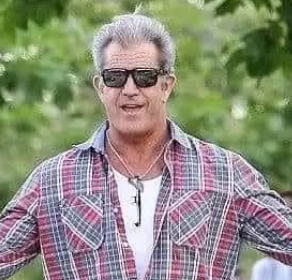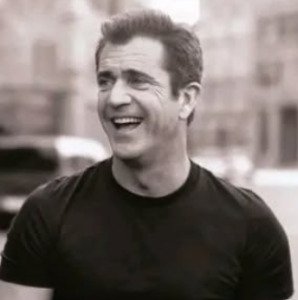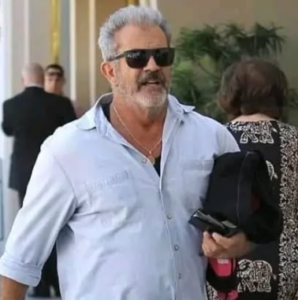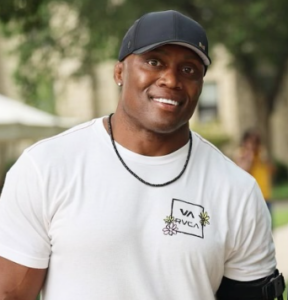In recent years, Gibson has been involved in various projects, both in front of and behind the camera.
While his reputation remains polarizing, his talent and dedication to filmmaking are undeniable. Fans and critics alike anticipate his future endeavors with curiosity.
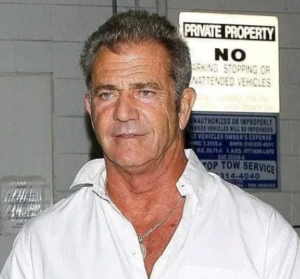
Also Read: Are Mel Gibson And Sheila Gibson Brother And Sister? Family Tree Explored
Also Read: Who Are Susanna Gibson’s Children? Meet Jack and Lila, Career, Family, Husband
Mel Gibson: Who Is He?
A Hollywood Icon
Mel Gibson, born on January 3, 1956, in Peekskill, New York, is a multifaceted figure in Hollywood known for his achievements as an actor and filmmaker.
This article delves into his journey from a budding actor to a celebrated filmmaker, exploring his career highs, personal challenges, and cultural impact.
Gibson was the sixth of 11 children in a devout Catholic family. At age 12, his family relocated to Sydney, Australia, where his father, Hutton Gibson, sought to escape the Vietnam War draft and provide better opportunities for his family.
Growing up in Australia significantly influenced Gibson, immersing him in a different cultural landscape.
Early Life and Move to Australia
Gibson’s foray into acting began when he enrolled at the National Institute of Dramatic Art in Sydney.
Here, he honed his craft and showcased his talent in productions such as Romeo and Juliet alongside Judy Davis. His time at NIDA laid the groundwork for his entry into professional acting.
Gibson’s breakout role came in George Miller’s post-apocalyptic film Mad Max (1979), where he played Max Rockatansky.
The success of the film catapulted him to international stardom, and he reprised the role in two sequels (Mad Max 2: The Road Warrior in 1981 and Mad Max Beyond Thunderdome in 1985).
Gallipoli: A Turning Point
Director Peter Weir cast Gibson in Gallipoli (1981), a World War I drama that showcased his versatility as an actor.
The film earned critical acclaim, with Gibson receiving a Best Actor Award from the Australian Film Institute. This role marked him as a serious actor capable of handling emotionally complex characters.
The Lethal Weapon series (1987–1998) solidified Gibson’s status as a Hollywood action hero. His portrayal of Martin Riggs, a reckless yet deeply human cop, alongside Danny Glover’s Roger Murtaugh, became iconic. The franchise’s blend of humor, drama, and action endeared it to audiences worldwide.
Braveheart: A Filmmaking Triumph
In 1995, Gibson took on the monumental task of producing, directing, and starring in Braveheart. The epic historical drama, centered on Scottish freedom fighter William Wallace, was both a commercial and critical success.
It won the Academy Awards for Best Director and Best Picture, establishing Gibson as a talented filmmaker.
During the 1980s, Gibson founded Icon Entertainment, a production company. The venture allowed him to explore diverse film projects, both as an actor and a producer. Icon became known for supporting independent films and challenging mainstream cinematic trends.
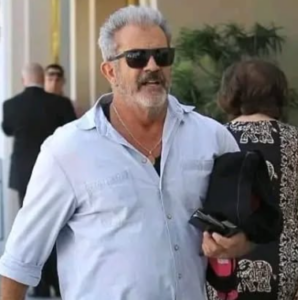
Mel Gibson: Controversy and The Passion of the Christ
Gibson’s 2004 film The Passion of the Christ was a cultural phenomenon. The biblical drama, depicting the final hours of Jesus Christ, was praised for its visual storytelling but faced criticism for alleged anti-Semitic undertones.
Despite the controversy, the film was a massive box office success, earning over $600 million worldwide.
In 2006, Gibson directed Apocalypto, a gripping action-adventure film set in Mesoamerica during the early 16th century.
The movie received critical acclaim for its authenticity, cinematography, and intense narrative, further cementing Gibson’s reputation as a visionary director.
Gibson’s career faced turbulence due to a series of legal issues and controversial public statements. Allegations of racism, sexism, and anti-Semitism tarnished his image, leading to a significant decline in his popularity within Hollywood. Projects were shelved, and collaborations dwindled during this period.
View this post on Instagram
The Resurgence: Hacksaw Ridge
After a decade-long hiatus from directing, Gibson made a triumphant return with Hacksaw Ridge (2016).
The biographical war film about Desmond Doss, a conscientious objector in World War II, was a critical and commercial success. It won two Academy Awards, marking a comeback for Gibson as a filmmaker.
Beyond directing, Gibson delivered memorable performances in films like Ransom (1996), Payback (1999), What Women Want (2000), The Patriot (2000), and Signs (2002).
These roles showcased his range, from action thrillers to romantic comedies and historical dramas.
Philanthropy and Personal Beliefs
- Despite his controversies, Gibson has been involved in numerous philanthropic endeavors.
- His contributions include funding children’s hospitals, supporting education, and donating to disaster relief efforts.
- His personal beliefs, often tied to his devout Catholic upbringing, have also shaped his choices in both his career and charitable activities.
- Gibson’s work has left an indelible mark on the film industry.
- His directorial projects often tackle themes of heroism, faith, and perseverance, while his acting roles highlight his ability to embody both vulnerability and strength.
- Films like Braveheart and The Passion of the Christ remain cultural touchstones.
- As an actor and director, Gibson has inspired generations of filmmakers and performers.
- His bold choices in storytelling and commitment to his craft have set a benchmark in Hollywood.
- Despite personal and professional setbacks, his contributions to cinema continue to be celebrated.
Also Read: Kim Goodburn Sexuality: Is He Gay? Mister International Twitter Scandal Explored
